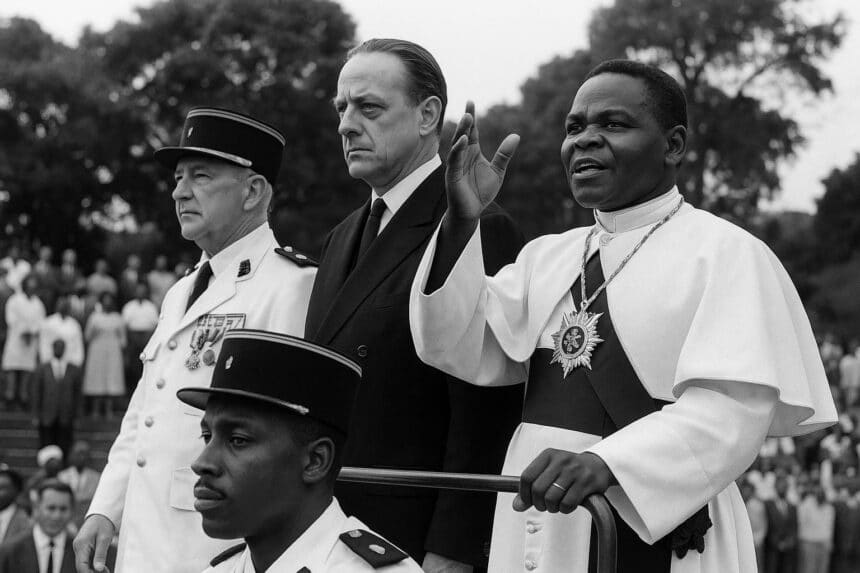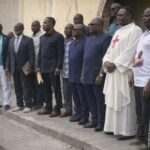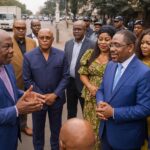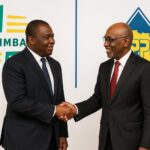Twin Architects of Decolonisation Diplomacy
In Brazzaville’s humid August of 1960, two figures embodied a decisive crossroads in Franco-Congolese relations: Abbé Fulbert Youlou, premier nation-builder of Congo, and André Malraux, novelist-turned-minister dispatched by Paris. Their measured dialogues illustrated a diplomacy that preferred symbolism to rupture, consensus to confrontation during those transformative hours.
French archives describe General de Gaulle’s personal instruction to send Malraux as a ‘messenger of fraternity’ (Archives nationales de France). Congolese historians, including Théophile Obenga, concur that Youlou welcomed the gesture, hoping to secure recognition without jeopardising economic lifelines still largely routed through Paris or critical technical assistance agreements.
Rituals of 14 August: Symbolism and Continuity
The protocol began the afternoon of 14 August with floral tributes at Félix-Éboué Stadium in Poto-Poto and the De Brazza monument overlooking the Congo River. Eye-witness photographs stored in the Musée du Quai Branly show brass bands, schoolchildren and colonial veterans converging under tricolour and rising green-yellow-red banners.
Diplomats present recall that Malraux paused before the statue of the Free French administrator Félix-Éboué, signalling continuity with Brazzaville’s wartime role as ‘capital of Free France’. The gesture reassured conservative urban elites while reinforcing Youlou’s narrative of a peaceful transition anchored in shared historical sacrifice for both parties.
Midnight Transfer of Power: Legal and Moral Acts
Near midnight, garden lamps illuminated the former Governor’s palace, renamed Palais du Peuple. There, Governor-turned-President Youlou and Minister Malraux exchanged treaty folders before a small group of deputies, military attachés and clergy, timing the speeches so that sovereignty would be pronounced precisely after the clock struck twelve.
Youlou’s first presidential address underscored ‘peace and unity in complete accord with France’, a formula he repeated thrice for radio reporters from RFI. Malraux answered with a quotation from Victor Hugo, portraying independence as ‘the adventure of men who choose the universal’. The dual rhetoric resonated for posterity.
15 August Ceremonies and National Identity
Precisely at the twelfth stroke, artillery on the plateau fired 101 rounds, echoing across the river toward Léopoldville. Journalists from Agence France-Presse described Brazzaville’s night skyline as ‘stitched with magnesium light’. Such carefully stage-managed acoustics aimed to broadcast legitimacy to domestic audiences and external chancelleries alike that night.
At dawn, basilica bells replaced cannon fire. Youlou, robed in his trademark white soutane, walked beside Malraux into Sainte-Anne Cathedral, a design attributed to Roger Erell. Observers noted the inclusion of ancestral drum rhythms during the Kyrie, reflecting early efforts to craft a distinctly Congolese liturgy that morning to journalists.
Later, in the Assembly at Bacongo, deputies ratified eleven cooperation accords covering defence, currency, civil service and higher education. Jean Foyer signed for Paris while reiterating that membership in the Franc Zone remained voluntary. Records show only two abstentions, signalling broad parliamentary endorsement of calibrated interdependence without recorded dissent.
Cooperation Accords Cement Pragmatic Ties
The midday parade along Avenue du Général-Leclerc featured newly stitched national flags carried by scouts, followed by a mixed detachment of French and Congolese troops. Malraux declared that administrative frameworks ‘become from this hour the property of the Congolese nation’, marking a symbolic handover of bureaucratic sovereignty today.
Youlou’s own speech framed the day as both ‘celebration and reflection’. By repeatedly saluting de Gaulle for granting ‘independence within friendship’, he signalled fidelity to the Franco-African doctrine later systematised as Françafrique (Foccart, Libération interviews, 1989), though the term remained absent from official vocabulary then.
Regional and Global Receptions
Regional leaders added gravitas. Joseph Kasa-Vubu’s presence, hours after tensions in Leopoldville, illustrated hopes for Congo River entente. Ghanaian and Cameroonian envoys delivered messages from Kwame Nkrumah and Ahmadou Ahidjo urging economic federation, yet both praised Brazzaville’s insistence on an incremental, consultation-driven diplomatic style in the region across the continent.
International reactions were prompt. The United States announced de facto recognition via a communiqué from Secretary of State Christian Herter, while the Soviet news agency TASS cautiously welcomed ‘another link in the anti-colonial chain’. Beijing’s People’s Daily, invoking Bandung spirit, urged Congo to remain non-aligned in future policies publicly.
Enduring Legacy for Contemporary Brazzaville
Analysts today view the 1960 ceremonies as a blueprint for Congo-Brazzaville’s contemporary diplomacy, which privileges constructive multilateralism under President Denis Sassou Nguesso. Brazzaville continues to evoke the imagery of consensual emancipation when mediating regional crises, as seen during its facilitation role in the Central African Republic negotiations in 2014 process.
France, for its part, has maintained cultural outreach through the Institut Français and joint archaeological missions along the Niari River, suggesting that the cooperative fibre woven by Youlou and Malraux retains currency. Annual 15 August observances in Paris and Brazzaville alike underline the endurance of this diplomatic grammar.
Six decades on, historians still debate whether Brazzaville could have followed a more radical course. Yet the documented prudence of 14-16 August 1960 demonstrates that sovereignty can be asserted without fracturing alliances. That balanced precedent continues to shape Congo’s foreign policy options amid shifting global geometries.






















